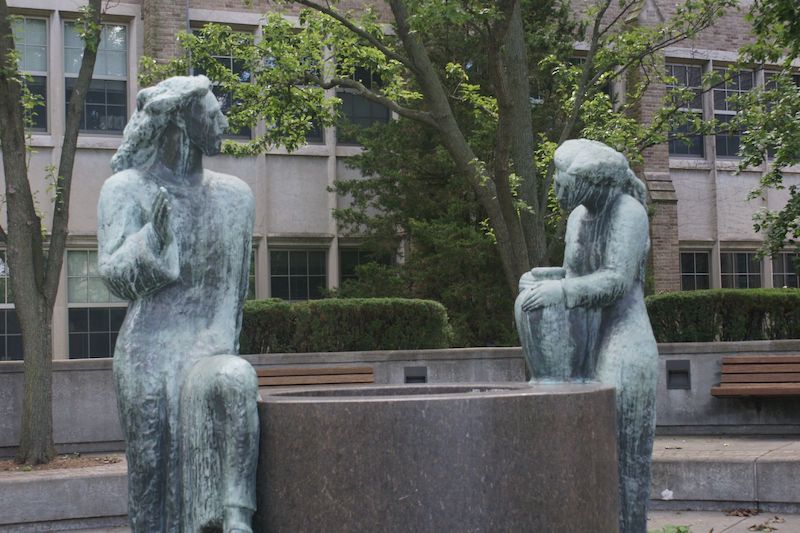Genesis 24:12-20, Psalm 119:33–40, John 4:4–26
Today’s offering in the calendar of Saints is one whose real name we really don’t actually know — the Samaritan woman at the well that we encounter in our Gospel reading today. Early Christians thought she was important enough to give a name–Photini (sometimes spelled Photine), which means “person of light” or “luminous one.” She certainly illuminated Jesus in their interchange!
All we know about her is she’s “that woman at the well.” We have no idea when she was born, or what her life was like. Again, early Christian tradition teaches that she was a witness to the faith. Some said her evangelical skills equaled that of the Apostles. Ironically, legend has it that she was martyred under Emperor Nero by being tortured and finally thrown into a dry well.
What’s probably lost on us, though, as we read this passage, is that “a scene at the well” was a well known plot device of storytellers of the Middle East, including ancient Hebrew stories. Listeners at the time expected stories of encounters of men and women at wells to be betrothal stories, much in the same way we expect the typical encounter in a romantic comedy to be a meeting where the main female character can’t stand the guy, but will later fall for him.
We see this plot device at work in our Old Testament reading today. Abraham’s servant is praying to find a wife for Isaac–and he goes to the well…and who should appear but Rebekah. Any ancient Hebrew listening to the story knew as soon as the servant approached the well that something was going to happen.
The contemporary Jewish listeners at the time the Gospels were written knew this encounter at the well had the earmarks of a betrothal story–and the uncomfortable message was that Samaritans–yes, the hated Samaritans–were worthy of being betrothed to the message of following Jesus. Not only were they worthy of receiving the message, they were worthy of spreading it, just as we see her doing in today’s passage. That had to sting, and perhaps it still stings us a little, in these times in which we hide behind making a cartoon character or meme out of someone who doesn’t seem to be “like us” or someone we simply dislike.
The other plot device in this story hinges on the phrase “It was about noon.” Let’s be real–the woman the church named Photini has all sorts of reasons (and probably not totally unfounded) of why she should not trust this oddball Jewish fellow who comes to the well in the heat of the day. The so-called “nice people” would draw their water in early mornings and late evenings–because the well was a social center. This woman is out there in the heat of the day as a social outcast. Why should she trust someone else out there in the middle of the day? So it’s no surprise her conversation is a little guarded and maybe even a tad snarky. We’d do the same if we lived outside the bounds of polite society.
What I love about this tradition in the Church to “name the people with no names” is that, in a way, it restores a degree of humanity to her. When people have names, and when we call people by names, it changes how we see them. It’s the same reason why we hold the tradition in Anglicanism that we pray for even the rich and famous and high and mighty by first name only. That person in the news we don’t like…has a name. Every one of us is on a first name basis with God, even if we aren’t on a first name basis with that person..
How does naming Photini change how you see her in this story? How does knowing this story as a betrothal story change how you see your relationship with others through Christ?
Maria Evans splits her week between being a pathologist and laboratory director in Kirksville, MO, and gratefully serving in the Episcopal Diocese of Missouri , as the Interim Pastor at Christ Episcopal Church, Rolla, MO.
Christ and the Samaritan woman at the well (Photini), photo by Paul J. Everett, courtesy of Wikimedia Commons.

